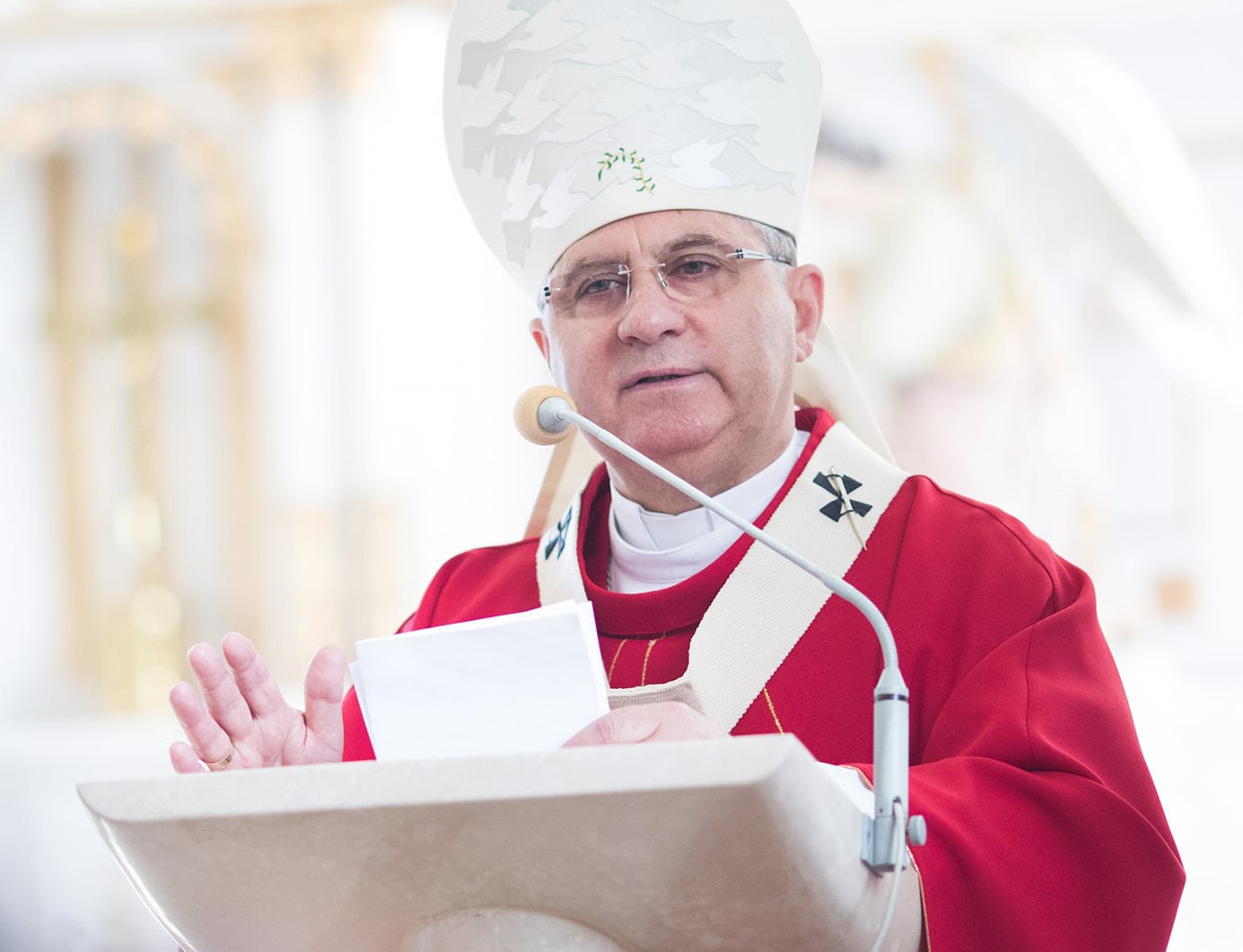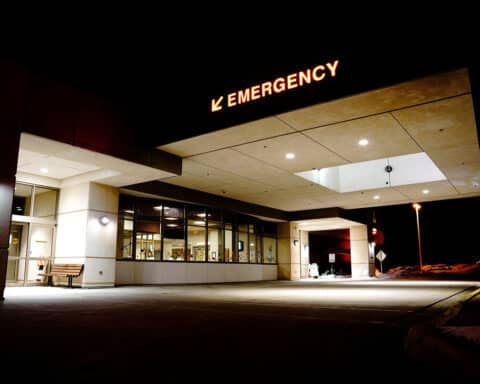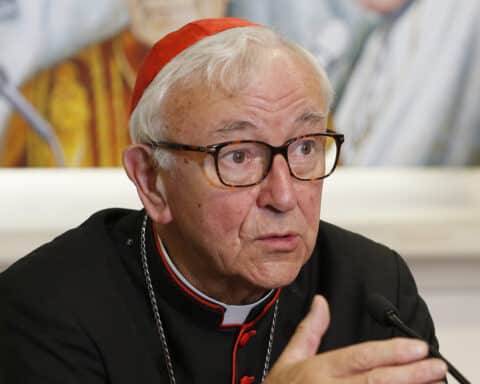(OSV News) — Catholic bishops in Slovakia have apologized to victims after publishing their first report on sexual abuse, issued without the media pressure exerted on Church leaders elsewhere, while cautioning that much more must be done to tackle the problem in the local church.
“We are aware the number of victims is certainly much higher. Therefore, we humbly admit we have not always taken an active stance in solving abuse crimes,” said Archbishop Bernard Bober of Košice, chairman of the 17-member conference.
“We sincerely apologize for the unpreparedness, carelessness, lack of interest or non-acceptance we as bishops may have shown. … The painful consequences of abuse crimes have often negatively impacted the faith of individuals and communities.”
The archbishop issued the statement as the bishops’ Commission on Protection of Minors, established in November 2018, published its first “evaluation report,” listing accusations against clergy and Church staffers over three decades.
He said the Slovak church had “strived for transparency and truthfulness,” but had still done “very little” in attempting to achieve the “zero tolerance” demanded by the pope and create a “safe environment for children.”
“We therefore appeal to all stakeholders, institutions and families not to turn a blind eye to this phenomenon — only through joint efforts can this evil be eradicated from our society,” Archbishop Bober said.
“We call on all people who have reliably learned about sexual abuse in the church to report it to the relevant church authority, and those who know of unreported crimes to report them to the civil authorities.”
A range in severity
The 35-page report, available on the bishops’ website since March 5, said 68 complaints had been received against Church personnel since 1990, most over the past eight years, of which 39 had been confirmed with 17 still under investigation.
It added that 44 minors had been listed as abuse victims, while 31 cases had involved diocesan priests and five religious order clergy, with a “wide range in the severity of offenses.”
Although 39 perpetrators had been punished by the Church, with 14 priests defrocked, the report said not all cases had been “handled completely flawlessly” because of “human failings,” misplaced loyalties or a lack of “valid regulations.”
The data had been published, the report added, as an expression of openness and transparency, and to “encourage those thinking about reporting abuse in the church” to approach diocesan tribunals.
“It is essential the church in Slovakia becomes a trustworthy institution and encourages others to report cases and seek justice,” said the commission in the report, chaired by Auxiliary Bishop Marek Forgác of Košice.
“Of course, the published data are far from reflecting an objective situation, and we know there are many more real cases in Slovakia. However, this should mark a step towards those who are still struggling internally over whether to open the Church’s arms to the injury they suffered.”
Pope met with victims
The Catholic Church, traditionally making up two-thirds of Slovakia’s population of 5.5 million, issued procedures for tackling abuse in June 2014, and a pastoral code for clergy two years later, establishing a system for reporting abuse and the first child protection center in March 2019.
The pope met abuse victims during his September 2021 Slovakia pilgrimage, while new procedures for handling abuse claims were issued in October 2022, and a chain of “reporting offices” was set up last September.
The report said the bishops’ commission formed part of an East European church network against abuse, formed at a Warsaw conference in 2021, and also hoped to “deepen and intensify” contacts with the Vatican’s Pontifical Commission for Protection of Minors.
It added that the church was obliged to report sexual crimes under section 3 of Slovakia’s Criminal Code, but had faced difficulties when the information provided was incomplete or when adult victims requested nondisclosure.
Anti-abuse training programs for clergy needed to be “more systematic,” and extend to laypeople working with children, the report said, while each of Slovakia’s 11 Latin and Greek Catholic dioceses and archdioceses should operate a “safety net” of experts, offering “spiritual, psychological and other professional help” to both victims and perpetrators.
“We should react to abuse not with lamentation or contempt, and certainly not with silence, but with an active attitude to eliminate these evils and preserve good in our world,” concluded the report, which was published during the Slovak bishops’ March 4-5 plenary at a Discalced Carmelite monastery near Košice-Lorincík.
Abuse issues are expected to be discussed during the bishops’ June 2-8 ad limina visit to Rome, their first since 2015.
Addressing the Vatican’s Pontifical Commission March 7, the pope urged a continued commitment to tackling abuse through sharing “best practices” and the “very concrete reality” of “listening, intervening, preventing and assisting.”





